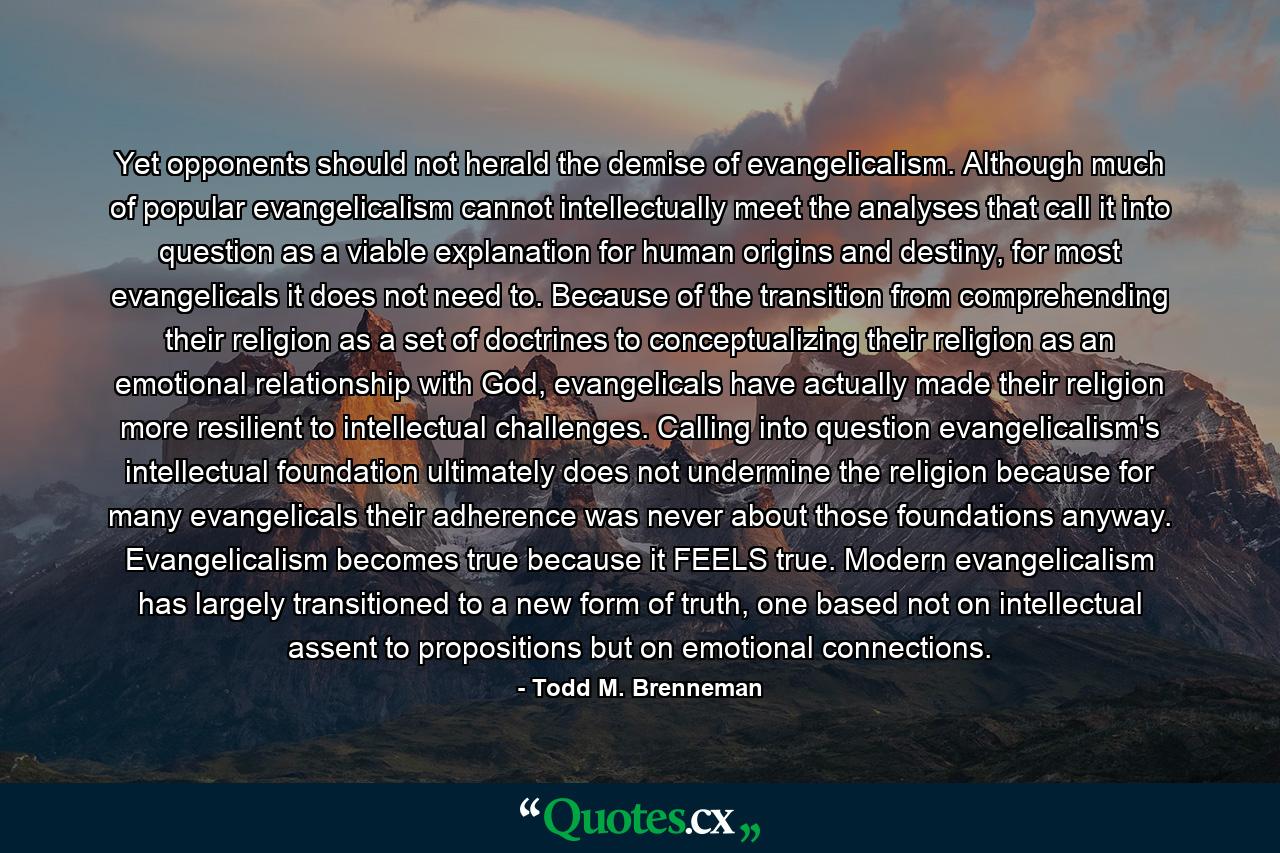Yet opponents should not herald the demise of evangelicalism. Although much of popular evangelicalism cannot intellectually meet the analyses that call it into question as a viable explanation for human origins and destiny, for most evangelicals it does not need to. Because of the transition from comprehending their religion as a set of doctrines to conceptualizing their religion as an emotional relationship with God, evangelicals have actually made their religion more resilient to intellectual challenges. Calling into question evangelicalism’s intellectual foundation ultimately does not undermine the religion because for many evangelicals their adherence was never about those foundations anyway. Evangelicalism becomes true because it FEELS true. Modern evangelicalism has largely transitioned to a new form of truth, one based not on intellectual assent to propositions but on emotional connections.
